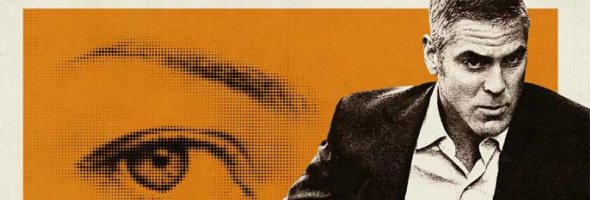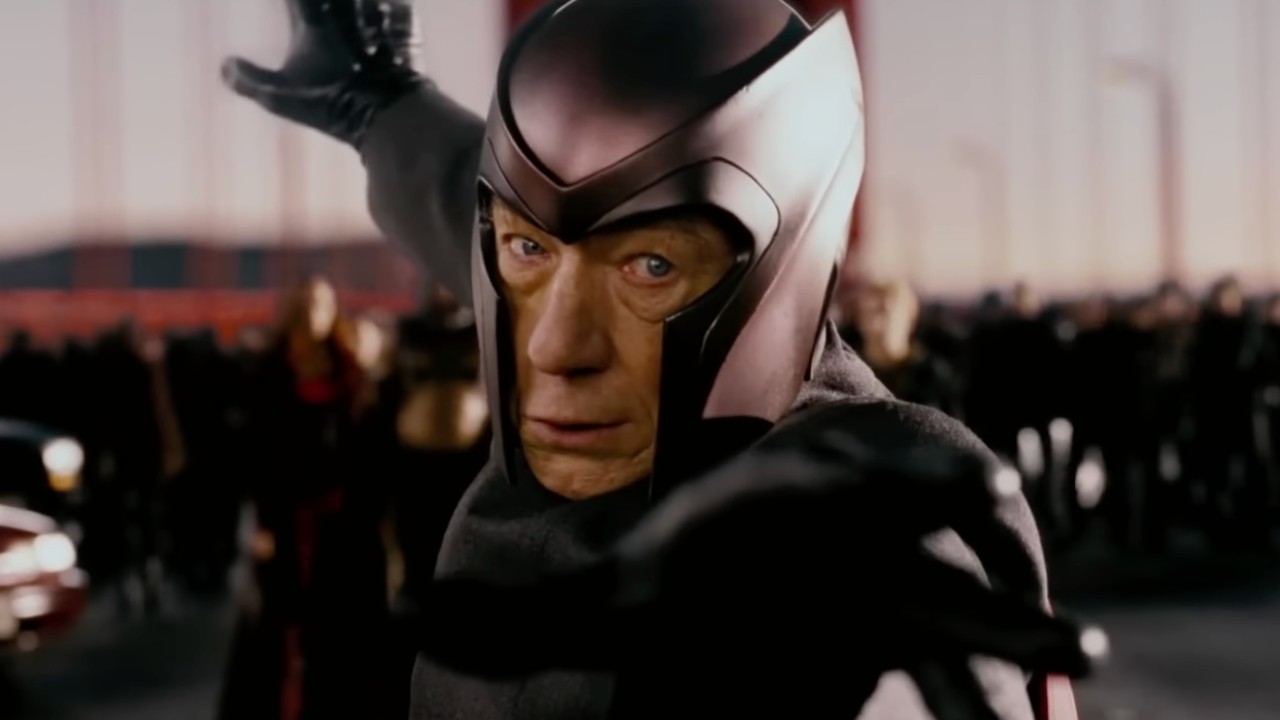Once you've seen The American the stylish, 70s-inspired one sheet makes perfect sense--this is a movie that bows at the feet of European art films, and isn't so much a thriller as a meditation on hitman movies and cinema history itself. Everything about it, from the placid camerawork and minimal dialogue to the ancient Italian settings, asks you to settle down into an earlier time. Director Anton Corbijn is not afraid to bore his audience in what's essentially a character study about a career assassin, and while he and Clooney happen upon some striking visuals and dig up a few interesting ideas, the flashy visuals tend to say a lot more than the story itself.
Things start well with a striking and intense confrontation in snowy Sweden, leaving three dead and Clooney's assassin Jack on the run to Italy, where he meets up with the mysterious man (Bruce Altman) who gives him his orders. Jack hides out in one of those Italian cities that's all cobblestones balanced precariously on a hilltop, working on a weapon specially ordered by a mystery woman (Tekla Reuten) and frequenting a whorehouse where he repeatedly asks for the dark and beautiful Clara (Violante Placido). Sometimes he chats with the local priest (Paolo Bonacelli) who speaks almost entirely in platitudes, once in a while he has to fend off a Swedish attacker who's linked him to the earlier crime, but for the most part Jack focuses on his weapons and chews gum while staring off into the middle distance.
Corbijn and his cinematographer Martin Ruhe film all of this beautifully-- it's hard not to when you're in Italy, of course-- but only occasionally do the intense visuals and morose hitman actually meet in the middle to create something interesting. Jack's habit of flinching every time a car backfires is a little too obvious, as is the sound mix that forces us all to flinch as well, but from the first scene Corbijn subtly builds an association between beautiful women and guns, to the point that two separate, peaceful picnics start to feel dangerous. It's a deconstruction of the objectifying "women as weapons" imagery that's been with us as long as James Bond, and with it Corbijn deftly examines both cinema history and the troubled character at the center of his own film.
A few other moments get there as well-- Jack lingers while watching Henry Fonda shoot a young boy in Once Upon A Time In The West, and a lush score interrupts occasionally simply to remind you of how quiet the rest of the film has been-- but the script by Rowan Joffe unfortunately goes nowhere new with its rote plot points and themes, which range from "it's hard to be a hitman who can't trust anybody" to "a man of violence can only be redeemed by a hooker with a heart of gold." Corbijn is clearly fiddling with the tropes of the hitman genre, denying the pleasure of shootouts and deception and focusing on an inscrutable lead character, but in the end we're in the same thematic territory as The Bourne Supremacy.
Clooney, though commanding as ever, never quite manages to make Jack interesting enough for his own character study; as he mopes through Italy and even a romance, his dark past becomes less intriguing and more like the baggage carried by cinematic hitmen for decades. The American is undoubtedly more stylish than most stories about men of violence and their woes, but I'm not all that sure it's got the added substance to match it.
Your Daily Blend of Entertainment News
Staff Writer at CinemaBlend


